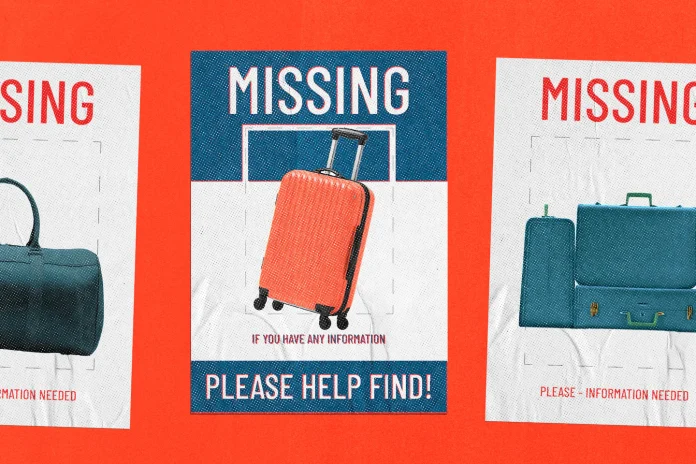Comment on this story
Comment
When travel experts offer advice about dodging disasters this summer, one piece is ubiquitous: Carry-on luggage is the only way to go.
“I would never, ever check a bag,” said travel agency executive Marc Casto, president of leisure brands in the Americas for Flight Centre Travel Group, in an interview last month. “We spent two years living in our shorts and flip-flops. We really don’t need that many things to bring with us to a different destination.”
Sometimes that is true. But other times, it’s impossible to commit to carry-on life. Say your flight’s overhead compartments are full, and you’re forced to gate-check your bag. Or you have booked a rock-bottom fare that — whoops — only allows for checked luggage. Or you’re traveling with a pet, which counts as your carry-on.
“There are times where you just have to suck it up and check a bag,” said William McGee, an aviation expert and consumer advocate who just checked bags for the first time in seven years. “Unfortunately, this summer is not a good time for that.”
McGee, a senior fellow for aviation and travel at the American Economic Liberties Project, only suffered some delays and damage to his bags on parts of his trip to Greece and the United Kingdom — which he counted as a victory.
As hordes of passengers encounter a shortage of workers, baggage has been a casualty all over the globe. Department of Transportation data through April shows that airlines mishandled baggage at a much higher rate than April 2021, when far fewer people were traveling, but at a lower one than March 2022 or April 2019. This April, the airlines mishandled — or lost, damaged, delayed or pilfered — nearly 220,000 of the 40 million bags they dealt with, according to a department report.
During a call with reporters Wednesday, Delta Air Lines CEO Ed Bastian said the company had experienced baggage issues with flights in Europe more than in the United States. He said that after difficulty in May and June, the company was ahead of its baggage performance goal for July.
“We’ve gone as far as recently we had a separate charter just to repatriate bags back to customers that had been stranded because of some of the operational issues the European airports were having,” he said. “We did that on our own nickel just to reunite our Delta customers to their bags as quickly as possible.” Icelandair made a similar move by sending staff to Amsterdam, which has been plagued with staffing issues this summer, to unload baggage.
Social media is full of stories of pathos, rage, defeat and occasional victory. The pop duo Aly & AJ tweeted about bag issues twice — once during a June trip to Milan and once this month, flying from Montreal to Los Angeles. Multiple golfers have sought help for missing clubs. Photos have circulated of luggage piling up at London’s Heathrow Airport. The Irish Independent reported that a woman who traveled to Ireland from Chicago to spread her parents’ ashes was distraught when the bag containing the remains was lost and then sent back to Chicago. She had flown with her cat, which was considered carry-on luggage, the newspaper said.
A family member’s lost luggage from Miami to Baltimore meant Alex Howard, 31, of D.C. didn’t have photos of his grandparents at his wedding on July 3. His aunt and uncle, who traveled from Nicaragua, weren’t able to carry on their bags with wedding clothes and the family photos; their flight was delayed on July 2, and the bags were delivered two days after the wedding.
Both were able to find last-minute clothes — important, since Howard’s aunt and father walked him down the aisle.
Sometimes a bag is a total loss even if it isn’t technically lost. Emilie Hofferber, a landscape photographer, flew Delta with her 13-year-old chihuahua mix, Margaret, from Florida to Utah earlier this month and had to check two bags. She had heard about lost-bag nightmares and bought an Apple AirTag tracker to put in one of the bags. That one showed up fine, but she eventually discovered the other in an airline office looking like it was “put through the wood chipper,” she said.
“Even what wasn’t like absolutely torn to shreds — it ended up getting irreparably damaged,” she said. After Hofferber, 26, tweeted photos of the bag and ended up on Inside Edition, the airline became extremely responsive, she said; on Tuesday, it had agreed to a reimbursement amount of about $3,670.
“Delta sincerely apologizes to this customer for the damage to her luggage and its contents,” the carrier said in a statement. “Delta teams have been in contact with the customer to offer compensation for this rare occurrence.”
Experts — and some travelers — offer these tips for not losing bags in the first place, or making the lost-luggage experience easier.
Try luggage shipping services
Sometimes the solution might include avoiding airport baggage altogether, said Casto, of Flight Centre. Companies including ShipGo, LugLess and Luggage Forward specialize in bag-delivery alternatives.
“If you need to bring a wedding dress, ship it in advance,” he said.
Make sure you have tagged your luggage properly and can identify it if it goes astray, McGee said. Take photos of anything that is being checked as well, and hold on to your claim ticket.
“That little strip that the airlines put on there — that is not the equivalent of an ID tag with your personal information,” he said.
McGee said he arrived at airports three hours early to maximize the chance of his bag getting on the plane.
“If you’re going to check in at the very last minute, if you’re one of those people that needs an escort to security because you just got there late — … the probability of your bag not making it … [is] higher than if you had checked in two hours earlier,” he said.
Don’t check anything crucial
Lindsey Renken, co-founder and chief executive of the travel app Airheart, told The Washington Post earlier this year that valuables and must-have items like medication should always go in a carry-on, not checked baggage. Even if someone is not allowed a carry-on bag or forced to gate-check, those important pieces should be placed in a small bag that can fit under the seat.
Social media users recommend trackers such as Apple AirTags so passengers can follow their bags’ progress, even if airlines don’t have a clue.
If you’re checking in luggage this summer (amid all the disruption) – it’s v sensible to place an Apple AirTag inside each bag 📶
Over weekend I was able to help friends with missing bags by showing airport staff exactly where the bags were…only because they had AirTags inside pic.twitter.com/DylcWGO3Su
— Alex Macheras (@AlexInAir) July 4, 2022
Report any problems right away
Don’t leave the airport without reporting a missing or damaged bag, McGee said, even if the line is long.
“You can’t come back the next day and say, ‘Oh, by the way, you damaged my bag yesterday,’” he said. “They’ll be like, ‘Well, no, maybe it was the taxi driver or the hotel.’”
Lauren LaBar, the travel and experience manager at the travel concierge app Upaway, told The Post this winter that passengers should get a copy of the report and a follow-up contact for customer service. Travelers should also provide their preferred delivery address.
Understand what you’re owed
The Department of Transportation says airlines are liable for up to $3,800 for lost, damaged or delayed bags. The maximum liability for international flights is about $1,780.
McGee said travelers should also look at their airlines’ contract of carriage and check for the compensation rules in Canada or Europe if they’re flying to those destinations.
“I don’t care how far it is; just drive,” said Hofferber, who has also dealt with delays that caused her to miss a connecting flight this summer. “Until they figure out how to staff their airlines and treat their employees, it’s just going to be an absolute nightmare at the airport.”
She added: “It’s just not worth the headache.”
Natalie B. Compton contributed to this report.












